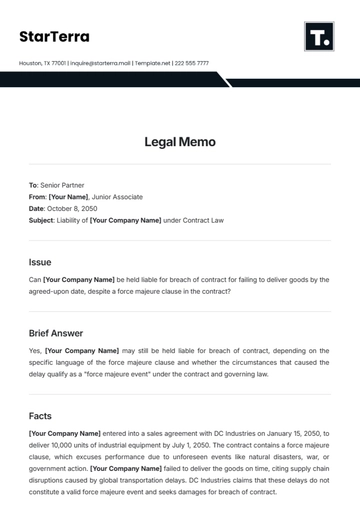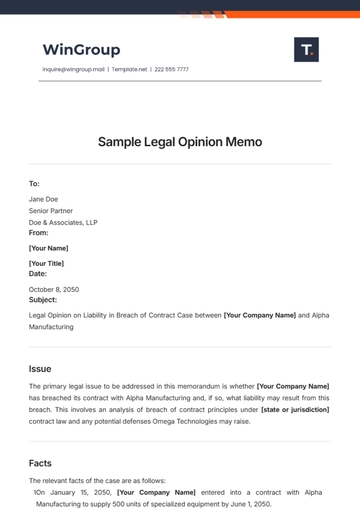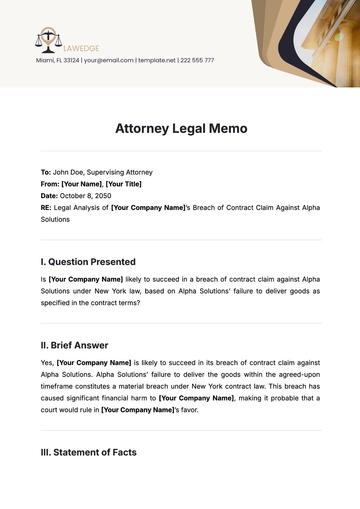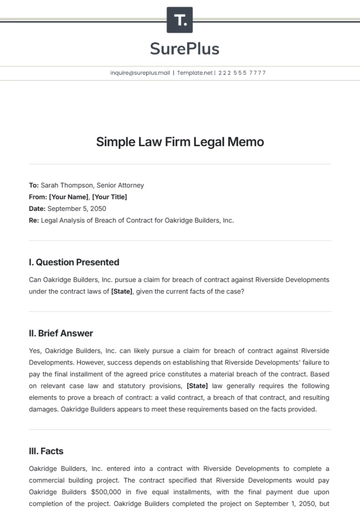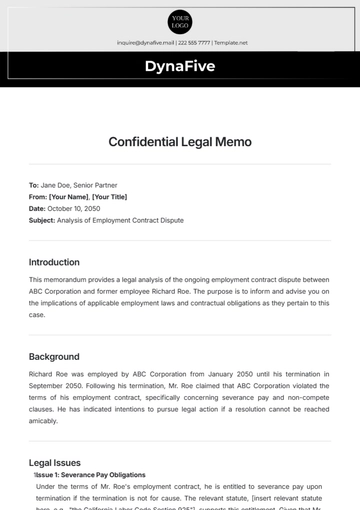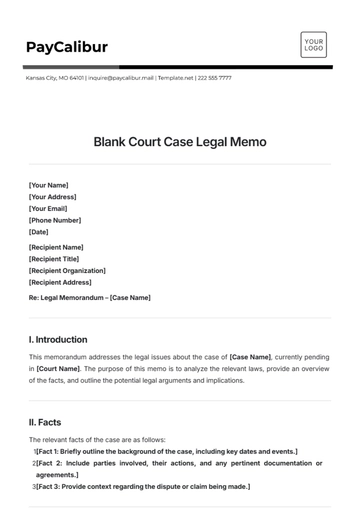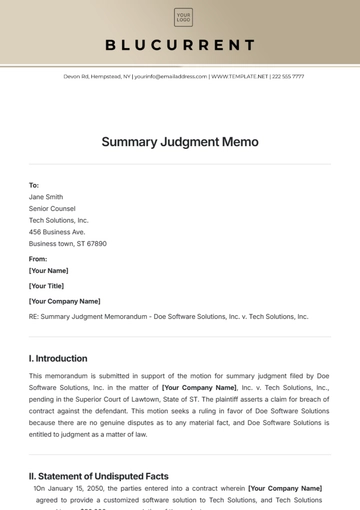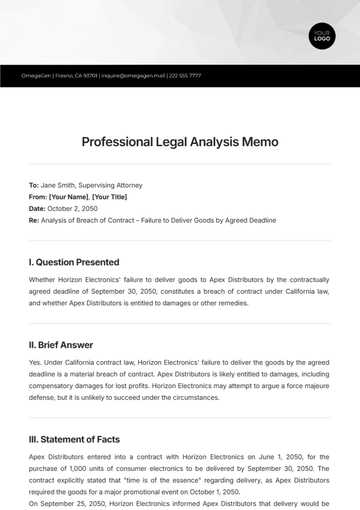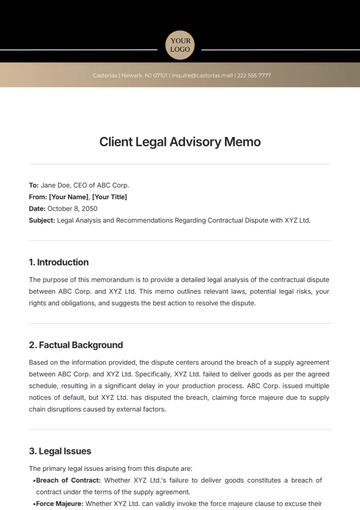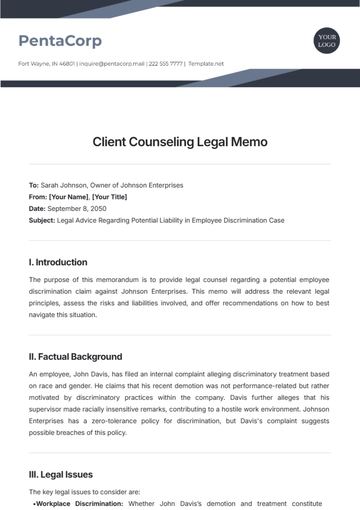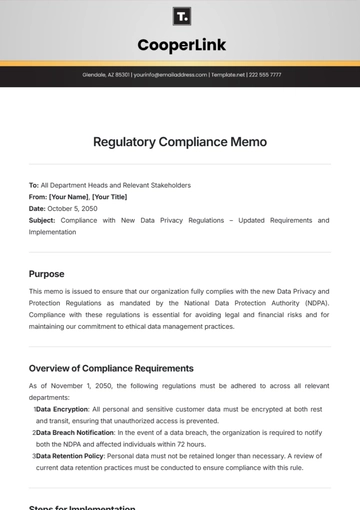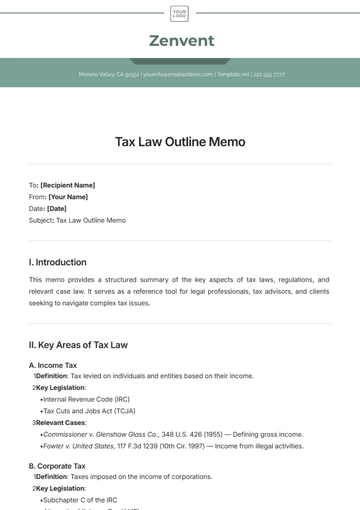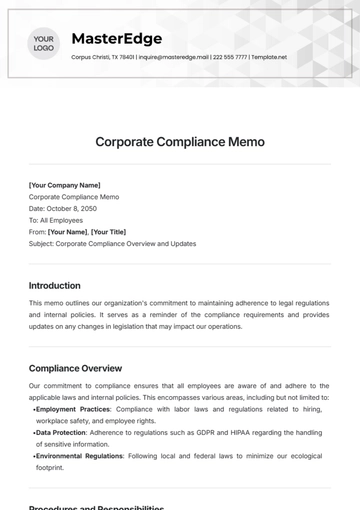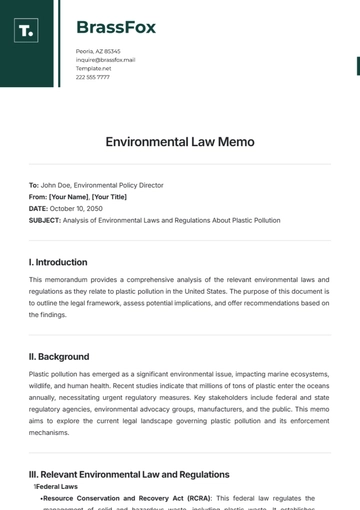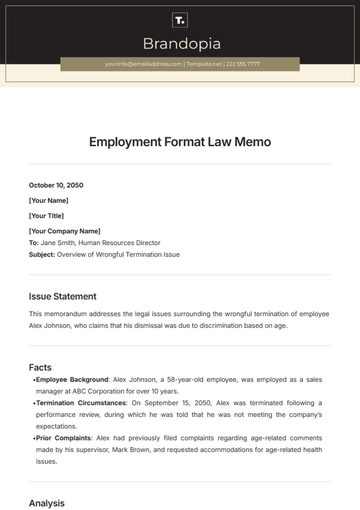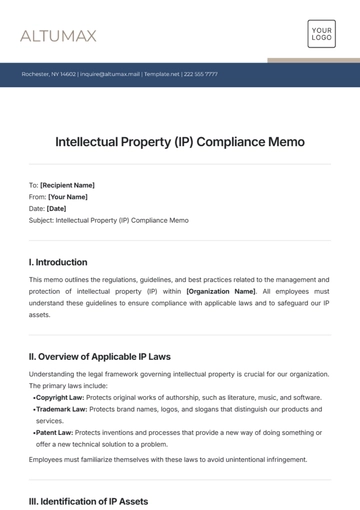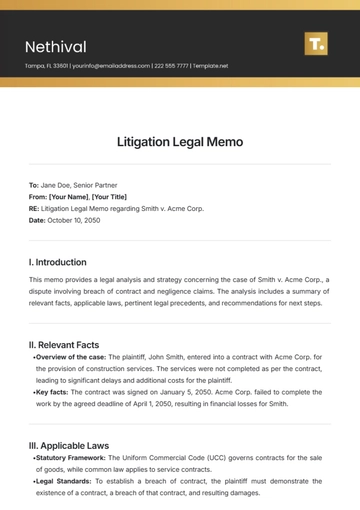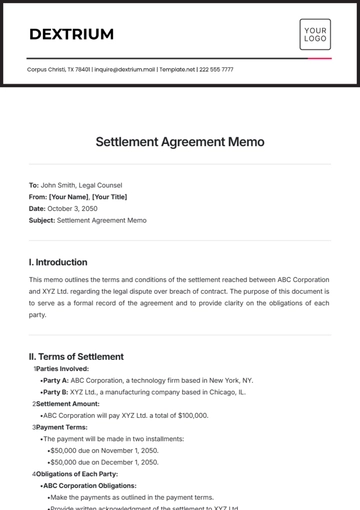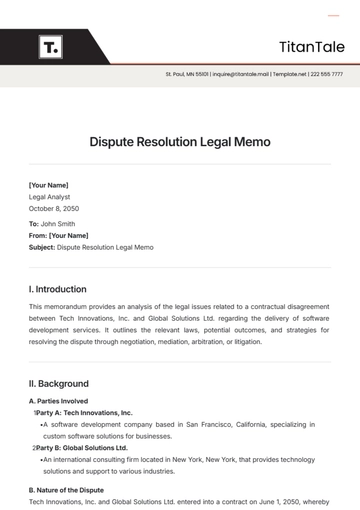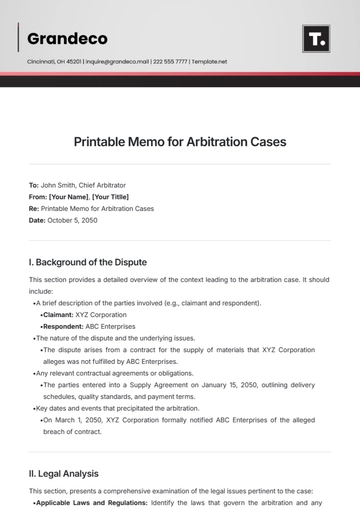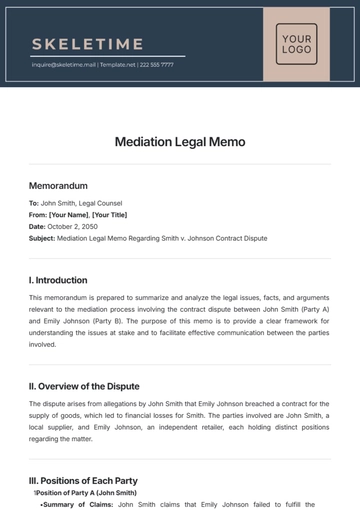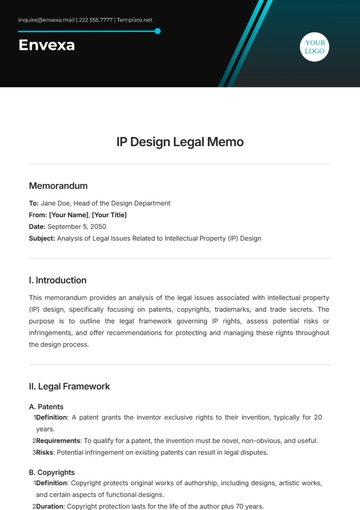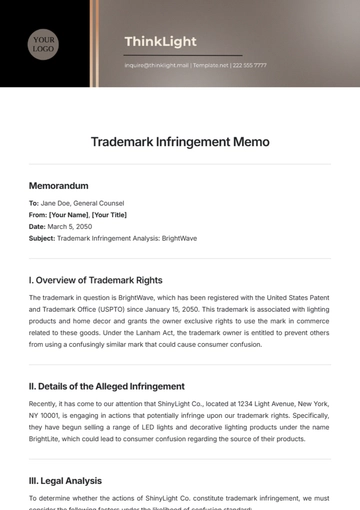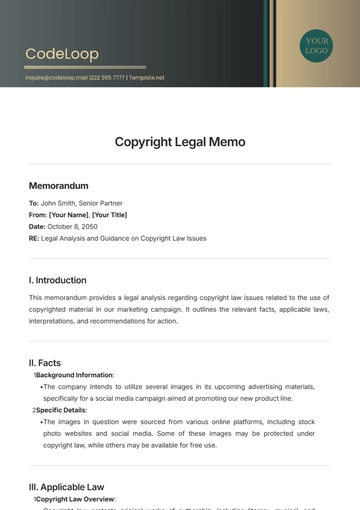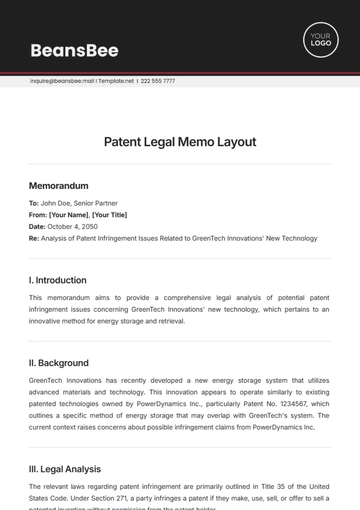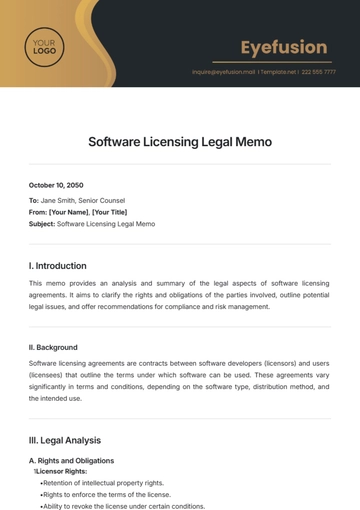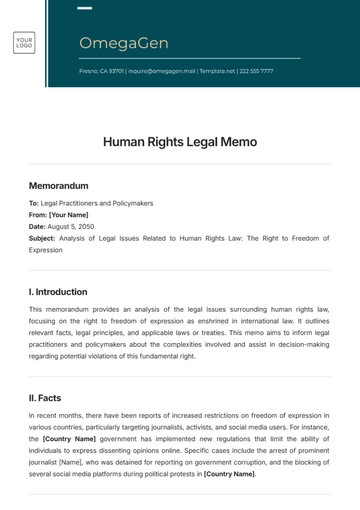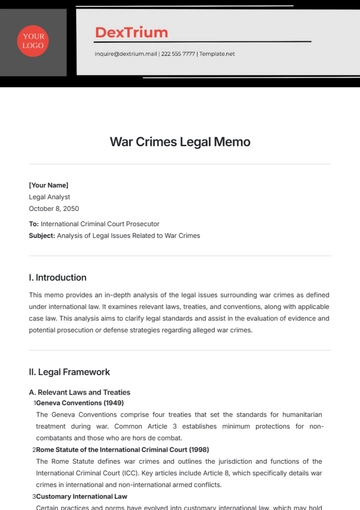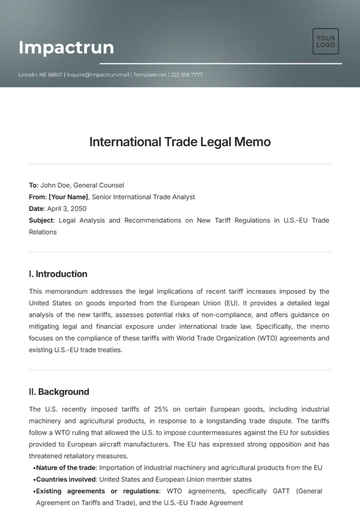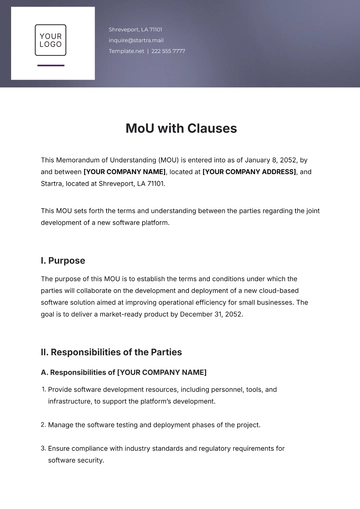Free Human Rights Legal Memo
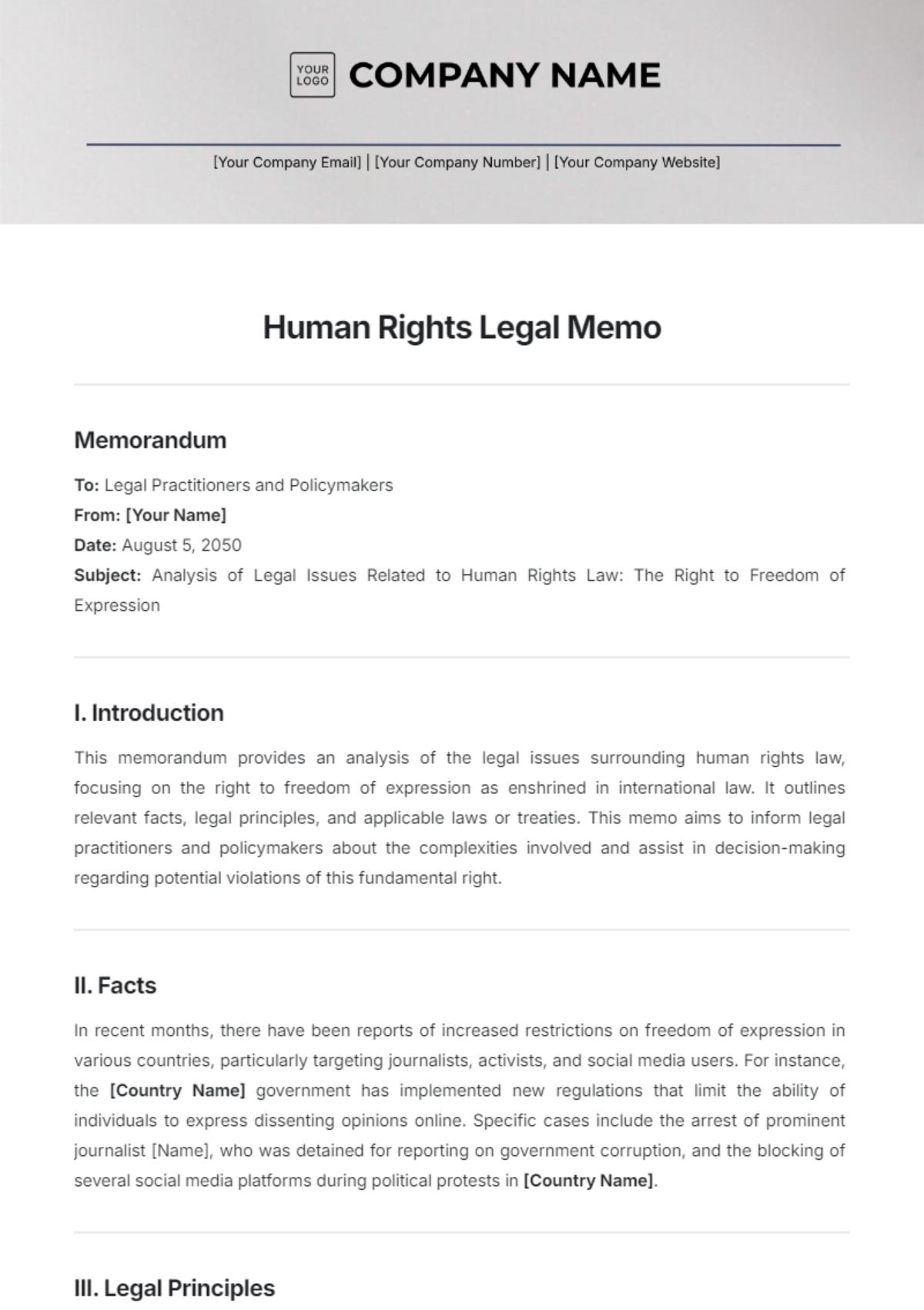
Memorandum
To: Legal Practitioners and Policymakers
From: [Your Name]
Date: August 5, 2050
Subject: Analysis of Legal Issues Related to Human Rights Law: The Right to Freedom of Expression
I. Introduction
This memorandum provides an analysis of the legal issues surrounding human rights law, focusing on the right to freedom of expression as enshrined in international law. It outlines relevant facts, legal principles, and applicable laws or treaties. This memo aims to inform legal practitioners and policymakers about the complexities involved and assist in decision-making regarding potential violations of this fundamental right.
II. Facts
In recent months, there have been reports of increased restrictions on freedom of expression in various countries, particularly targeting journalists, activists, and social media users. For instance, the [Country Name] government has implemented new regulations that limit the ability of individuals to express dissenting opinions online. Specific cases include the arrest of prominent journalist [Name], who was detained for reporting on government corruption, and the blocking of several social media platforms during political protests in [Country Name].
III. Legal Principles
Freedom of expression is a fundamental human right recognized under international law. It encompasses the right to hold opinions and seek, receive, and impart information and ideas through any media. Key legal principles include:
Universal Declaration of Human Rights (UDHR), Article 19: "Everyone has the right to freedom of opinion and expression; this right includes freedom to hold opinions without interference and to seek, receive and impart information and ideas through any media and regardless of frontiers."
International Covenant on Civil and Political Rights (ICCPR), Article 19: This article protects the right to free expression while also outlining permissible restrictions, which must be provided by law and necessary for respect of the rights or reputations of others, or for the protection of national security, public order, public health, or morals.
IV. Relevant Laws and Treaties
The following laws and treaties are relevant to the analysis of freedom of expression:
Universal Declaration of Human Rights (UDHR): A foundational document that outlines basic human rights.
International Covenant on Civil and Political Rights (ICCPR): Provides detailed provisions on the right to freedom of expression.
Regional Instruments: Such as the American Convention on Human Rights (Article 13) and the European Convention on Human Rights (Article 10), which also protect the right to free expression and provide frameworks for enforcement.
V. Case Analysis
Several notable cases illustrate the application of human rights law concerning freedom of expression:
Handyside v. United Kingdom (1976): The European Court of Human Rights held that freedom of expression includes the right to impart information that may be regarded as offensive or disturbing.
Kuriakose v. India (2016): The Indian Supreme Court reaffirmed the right to freedom of speech and expression, emphasizing that restrictions must meet strict scrutiny standards and must be necessary in a democratic society.
These cases demonstrate that while freedom of expression is a protected right, it is not absolute and can be subject to restrictions if justified under international standards.
VI. Implications and Recommendations
The implications of recent restrictions on freedom of expression are profound, as they not only threaten individual rights but also undermine democratic governance and the rule of law. Legal practitioners and policymakers should consider the following recommendations:
Strengthen Legal Frameworks: Review and amend laws that unduly restrict freedom of expression, ensuring compliance with international human rights standards.
Support Journalistic Freedom: Implement measures to protect journalists and media outlets from harassment, intimidation, and legal repercussions for their reporting.
Enhance Public Awareness: Educate citizens about their rights to freedom of expression and the importance of a free press in a democratic society.
VII. Conclusion
In conclusion, this memorandum has outlined the legal complexities associated with human rights law concerning the right to freedom of expression. Legal practitioners and policymakers must consider these legal principles and implications when addressing potential violations of this fundamental right.
- 100% Customizable, free editor
- Access 1 Million+ Templates, photo’s & graphics
- Download or share as a template
- Click and replace photos, graphics, text, backgrounds
- Resize, crop, AI write & more
- Access advanced editor
